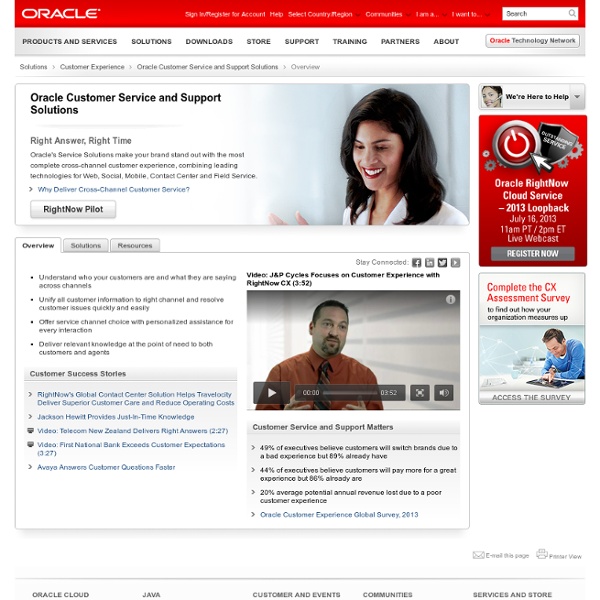



France Inter > L'édito éco Google Explains Life After the Desktop Google announced the availability of two Chromebooks — laptops based on Google's Chrome OS — at the Google I/O conference Wednesday, but the hardware specifications of those machines are almost completely irrelevant. According to Google, what makes these laptops interesting is not what they have, it's what they lack: programs, messy desktops or locally stored documents. A Chromebook is not really a laptop, and it's not really a computer, Google claims. It's the web in a "computer-like object" and if you believe Google, "you can do everything on the web." Of course, the lack of desktop software does have some benefits, such as a startup time as fast as 8 seconds. Furthermore, the fact that your files are stored in Google's cloud mean they're quite safe: You can literally throw your Chromebook into a river and you won't lose your stuff. The question, however, is whether the world is ready to completely move into the cloud?
Tous égaux devant le «Cloud» Semaine du 14 juillet : la France défile et prend quelques jours de vacances. Le lien avec l’informatique dans les nuages ? Le 14 juillet célèbre la Révolution française et la devise de la France : Liberté, égalité, fraternité. Je parle souvent dans ce blog de «révolution» à propos du Cloud et en particulier de la R2I, Révolution Industrielle informatique. Universalité, égalité, compétitivité Pourquoi ? Cette égalité des chances, c’est, probablement, le plus grand apport du Cloud Computing pour les entreprises. Egalité forte devant les Infrastructures Les trois composants d’une infrastructure Cloud sont bien connus : - Des serveurs, clouds publics, gérés par des fournisseurs industriels : Amazon, Apple, Google, IBM ou Microsoft (ordre alphabétique !). - Des réseaux d’accès à ces serveurs, en majorité sans fil : 3G, LTE, Wi-Fi... - Des objets d’accès au Cloud, de plus en plus mobiles : smartphones, tablettes, laptop, netbook... Les deux grands «égalisateurs» réseaux sont : Synthèse
With Bitcasa, The Entire Cloud Is Your Hard Drive For Only $10 Per Month The cloud is now your hard drive. And not just a few dozen Gigabytes, Terabytes or even Petabytes, but all of it – infinite storage – for only $10 per month. This is the incredible promise of the new TechCrunch Disrupt finalist Bitcasa. The company is launching a new cloud storage, syncing and sharing service that blows away its competitors, including hard drive manufacturers and online services like DropBox and SkyDrive, with ease. The idea of using the cloud to store files or sync files between devices is not new. But Bitcasa is not like any of those services. When you save a file, Bitcasa writes those 1′s and 0′s to its server-side infrastructure in the cloud. So if you want to cloud-enable your 80 GB collection of MP3′s or a terabyte of movies (acquired mainly through torrenting, naughty you!) Sharing files via Bitcasa is simple too: just copy and paste a file’s or folder’s link (a URL, available on right-click) and send to someone via email, IM or some other service.
DOSSIER Cloud Computing : évolution ou révolution ? Depuis trois ans environ, un concept fait fureur dans le monde du high-tech : celui de Cloud Computing ou, pour reprendre la traduction française, « d'informatique dans le nuage ». Pas un salon spécialisé, pas une revue informatique, pas une nouvelle offre logicielle qui ne fasse référence au « Cloud ». Même Apple s'est converti à cette terminologie en lançant son nouveau service de stockage des données personnelles, « iCloud ». Mais si le terme est de plus en plus utilisé, sa véritable signification reste floue, voire brumeuse, pour bon nombre d'entreprises. Cependant, à la différence de ce qui se faisait jusqu'alors avec l'infogérance (où les entreprises font héberger leurs données à l'extérieur sur des serveurs qui leur sont alloués personnellement), le Cloud ne propose pas des serveurs dédiés aux clients. Intérêt multiple En revanche, l'usage du SaaS monte en flèche. Négociation contractuelle De leur côté, les grandes organisations ont été un peu plus réticentes à adopter le Cloud.
Reveals Top Predictions for IT Organizations and Users for 2012 and Beyond STAMFORD, Conn., December 1, 2011 View All Press Releases Predictions Show IT Budgets Are Moving Out of the Control of IT Departments Gartner, Inc. has revealed its top predictions for IT organizations and users for 2012 and beyond. Analysts said that the predictions herald changes in control for IT organizations as budgets, technologies and costs become more fluid and distributed. This year's selection process included evaluating several criteria that define a top prediction. The issues examined included relevance, impact and audience appeal. Gartner's top predictions for 2012 and beyond showcase the trends and events that will change the nature of business today and in years to come. "The continued trends toward consumerization and cloud computing highlight the movement of certain former IT responsibilities into the hands of others," said Daryl Plummer, managing vice president and Gartner fellow. Gartner's top predictions for 2012 include: Mr. Contacts About Gartner Gartner, Inc.